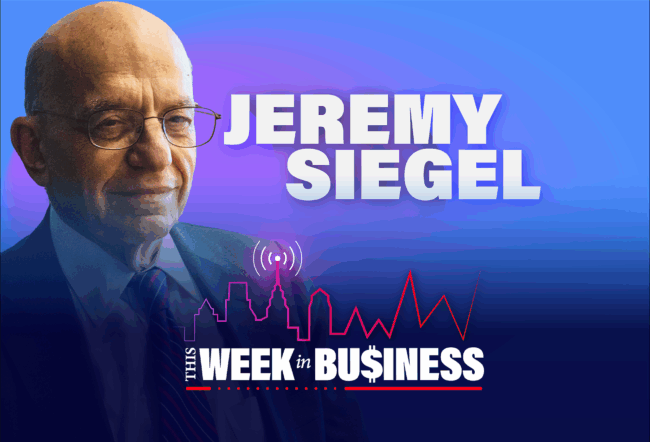Morris Cohen, Wharton professor of manufacturing and logistics in the Operations, Information and Decisions Department, joins the show to discuss how companies can prepare for potential tariffs under the Trump administration. (Editor’s note: This interview took place on November 14, 2023.)
Transcript
Dan Loney: Well, great to continue the conversation with Morris Cohen, who's a Professor of Manufacturing and Logistics in the Operations, Information and Decisions Department here at the Wharton School. Professor Cohen, great to talk to you. Thanks very much for your time today.
Morris Cohen: Thank you. It's a pleasure to be here.
Loney: You know, it's interesting. When you look at the logistics side and manufacturing side, with all the conversation going on about potential tariffs, it seems like we're seeing more and more companies taking a preemptive step to maybe make some of these changes right now.
Cohen: Oh, absolutely. In fact, that's sort of an essential requirement now for how to deal with these disruptions. You're thinking in terms of investing in a real option. Companies have to make decisions about how they'll react to these contingencies if they should occur. Like, you know, a huge trade war caused by tariffs. But the policies that they want to implement, like shifting manufacturing to another country, or changing their supplier network, require time and investment. And if you don't make those decisions up front, you won't be able to respond adequately.
So it's like purchasing an option. But unlike a financial option, it's a real option. You have to make an investment in assets, plant equipment, relationships with suppliers, data, so on. And then you wait. So you anticipate, and then you react after the event has occurred. And then you have the resources available, and you exploit the option that you have.
Loney: We've seen so much production go overseas in the last several decades. For companies that rely on that, it has to be a massive challenge to shift this, what feels like midstream, to change the dynamics of a lot of where you're producing and how you're producing. And then, of course, the shipping component as well.
Cohen: Yeah. We did a big study based on the pattern of shipments into the U.S. by ship from everywhere in the world. This was in response to the COVID disruption. But now we're talking about a geopolitical disruption which could be caused by tariffs, could be caused by war and insurrection and so on. And we saw even in responding to COVID, companies have been responding for quite some time. There's been shifts in manufacturing out of China to Vietnam, to India. There's been near shoring, which is bringing production back to your market, like to Mexico, U.S., or Canada, or Western Europe. And then there's major investment in technology, in digital technology, to provide the flexibility to achieve resilience. So this has been going on for a while. But it's massive change, as you said.
Loney: Well, obviously China is talked about a lot as being one of the core components that the U.S. government would like to put pressure on.
Cohen: Right.
Loney: Even in the run up to the election, [Trump] mentioned at one time about John Deere potentially moving some of their production to Mexico. But there is even a concern by him and maybe even the administration about production in Mexico, which is a very vital trade partner of ours when you think about things in North America.
Cohen: There's no place in the world that's going to be exempt from this. And Mexico and Canada, the whole North American trade structure, has been a subject of discussion and policy impacts for quite some time. And you know, the free trade agreement between Canada, U.S. and Mexico was modified by the Trump administration, and it remains to be seen now how they'll respond to the current situation. So companies in Mexico, the government, they're concerned. Absolutely.
Preparing for Tariffs: Scenario Planning
Loney: For companies, then, that maybe haven't taken some of these steps yet — and there is still some unknown component as to what we're going to see play out. But what should they be thinking about? How should they be approaching the potential of making these shifts?
Cohen: Okay. Well, I would say — we actually wrote a paper on this. I can give you a reference. But our in our conclusion — we had three or four conclusions which I think respond to your question. First of all is the notion of scenario planning. You have to identify future scenarios that could be impactful. So think of the tariffs. Think of world wars, and trades, and all those disruptions. I'm not saying that we can or ever will be able to predict those events, but we certainly can imagine them. And managers have to define those scenarios by imagining them. I'm sure a lot of companies are thinking that right now. And then figure out how they're going to respond. And that becomes the next step.
In order to do that, you need to analyze your supply chain. Because the response involves changing not only the structure of the supply chain, but how you manage it. And one thing that they have to embrace is the complexity of the global supply chains. It's a reality, and it's not all bad. By having these complex networks of flows and materials in and out, that actually provides opportunities to mitigate risk, to move things around. There's buffering that occurs.
And finally, the data, the decisions and the outcomes that you're concerned with are all interconnected. And as I mentioned before, you have to adopt a real option mind framework. What should we do now in anticipation of the scenarios that we've imagined, so if they should occur, we can exercise that option and be resilient.
Loney: And the companies have to do this while at the same time trying to minimize the negative impact to their bottom line, which — obviously something that every CEO wants to minimize as much as they can.
Cohen: Well, that — yes. And that raises a very important point, that when we're dealing with geopolitical — you know, global supply chains — we're talking about assets, materials, crossing borders. And once things cross borders, then financial flows are affected, in fairly complex ways. And so that has to be considered very, very carefully and directly, I would say.
Loney: Is it your expectation then, right now, that we still are kind of in a wait and see mode in terms of what we play out? Or should companies start to plan out and act on this?
Cohen: No, I think companies are planning and acting right now. We're wait and see, because we don't know what's going to happen. But that's by definition. You know, we don't know. What will the current administration actually do? Never mind the rhetoric. What policies will they adopt? I don't think anybody knows that for certain. But companies have to and already are making the investments and making the adjustments and coming up—you know, one thing that companies often do in this environment is they come up with what they call a playbook. That, if this event should occur, then we exercise—we turn on the playbook, and we go through. So, this was— if my supply is disrupted because the suppliers plant blew up, or now, because there's a huge tariff, I exercise this playbook. And I start calling people in my company, in my extended network, and so on. And they have a plan of action that they'll implement when needed.



